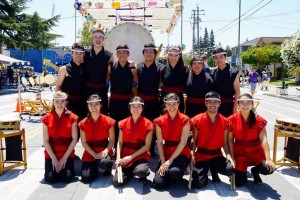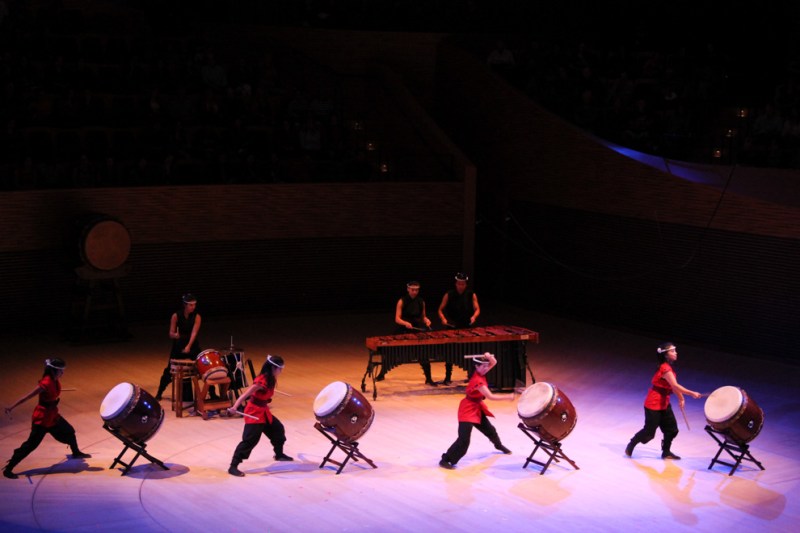All 21 members of Stanford Taiko embarked to Japan this summer on a study tour to explore taiko in its traditional Japanese form. The group breathed all things taiko in this two-week journey, participating in symposiums, visiting taiko museums and training under famous performers and their apprentices.
A particularly memorable excursion for Stanford Taiko member Joujou Nguyen ’17 was seeing the celebrated taiko group Kodo. After a Kodo performance, Stanford Taiko members shadowed a day in the life of the Kodo apprentices, experiencing their schoolhouse, food and training.
“It was really awe-inspiring to…be at a facility that is one of the most renowned taiko groups in the world,” Nguyen said. “The most powerful thing we learned from people was the real value of having a strong sense of duty to other people in the group. It’s a really communal art form.”
Stanford Taiko specializes in Kumi Daiko, a form of taiko that focuses on ensemble playing and requires this “communal art form” to create music. The trip to Japan cultivated this quality not only through studying traditional practice but also through group bonding.
“The [trip] gave us a lot of time to get very close with each other,” Nguyen said. “Knowing that you are part of a group and that you’re all there sweating and hitting drums together in unison really emphasizes the importance of every person’s contribution to the entire performance.”
Stanford Taiko valued the trip as an opportunity to experience the origins of the art form, which originated in Japan and served religious purposes. Taiko has recently become internationally popularized, although often slightly diverting from its Japanese traditions.
“Being able to travel to Japan, where it’s rich in all this taiko history, [and] getting to see [the history] after I have been in the group a couple years was what made [the trip] really neat for me,” said Emily Nguyen ’17, a three-year member and current performance director.
Stanford Taiko shared their experiences and the skills they developed after returning to the Bay Area. The Stanford group paired with San Jose Taiko to give back to the community and hosted a weeklong Summer Taiko at Stanford (STAS) camp for children from ages nine through 12.
“We made it a point to…teach the children about the history and development of taiko and give them context in which the art form arises,” Joujou Nguyen said. “We taught them about the fundamentals of the musical technique that go into it, the culture, the tradition behind it.”

While Stanford Taiko does not hold formal training sessions during the summer, the group did perform in a number of festivals and events. In July, the group played the halftime show for a Japan versus Canada rugby match for the Pacific Nations Cup at San Jose Avaya Stadium. The group also performed in the San Jose Buddhist Church Betsuin Obon Festival, celebrating ancestry through a traditional Japanese holiday.
“Everything that we perform is original repertoire, whether that means we compose those pieces ourselves or past members of Stanford Taiko have played them,” Joujou Nguyen said.
Stanford Taiko is currently experimenting with new instrumental components to their performances, incorporating nontraditional instruments like an African shaking gourd, marimbas, piano and Japanese flutes in their pieces.
“Taiko really is just a celebration of life,” Joujou Nguyen said. “As a group of students who are just trying to teach themselves the art form, we don’t really have a rulebook, and we welcome all sorts of innovation and experimentation, and I think that’s very true to the spirit of taiko as a cross-cultural art form.”
Contact Alice Dai at alicettdai ‘at’ gmail.com.
